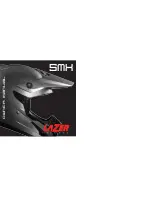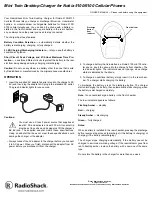
3
W W W . B A L T I M O R E A I R C O I L . C O M
NOTICE
• BAC units are typically installed immediately after shipment and many operate year round. However, if the unit is to be stored for a
prolonged period of time either before or after installation, certain precautions should be observed. See “Prolonged Outdoor Storage” on
page 7
for more details..
• Mechanical and operational methods must be employed to protect these products against damage and/or reduced effectiveness due to
possible freeze-up. Please refer to “Cold Weather Operation” on
page 24
for more details.
• The basin heater is not designed to prevent icing during unit operation.
• Ensure the controls for the fan motor are set to allow a maximum of six on-off cycles per hour to prevent motor overload.
• When reversing the direction of fan rotation, allow the fan to come to a complete stop before restarting the motor.
• Only lubricate the bearings with one of the compatible water resistant greases listed on
page 15
.
• Spray system pressure greater than 10.0 psig may cause damage to the distribution system.
• Never use chloride or chlorine based solvents such as bleach or muriatic (hydrochloric) acid to clean stainless steel. It is important to
rinse the surface with warm water and wipe with a dry cloth after cleaning.
• Do not use steam or high pressure water to clean PVC eliminators or materials other than steel.
The services required to maintain a piece of evaporative cooling equipment are primarily a function of the quality of the air and water in
the locality of the installation:
• AIR:
The most harmful atmospheric conditions are those with unusual quantities of industrial smoke, chemical fumes, salt, or heavy
dust. Such airborne impurities are carried into the equipment and absorbed by the recirculating water to form a corrosive solution.
• WATER:
The most harmful conditions develop as water evaporates from the equipment, leaving behind the dissolved solids originally
contained in the make-up water. These dissolved solids may be either alkaline or acidic and, as they are concentrated in the circulating
water, can produce scaling or accelerated corrosion.
The extent of impurities in the air and water determines the frequency of most maintenance services and also governs the extent of water
treatment which can vary from a simple continuous bleed and biological control to a sophisticated treatment system. Refer to “Water
Treatment” on
page 18
and “Biological Control” on
page 20
for more details.
Please refer to the Limitation of Warranties in the submittal packet applicable to and in effect at the time of the sale/purchase of these
products. Described in this manual are the recommended services for start-up, operation, and shutdown, and the approximate frequency
of each.
General Maintenance Information
Warranties
Equipment Precautions






































